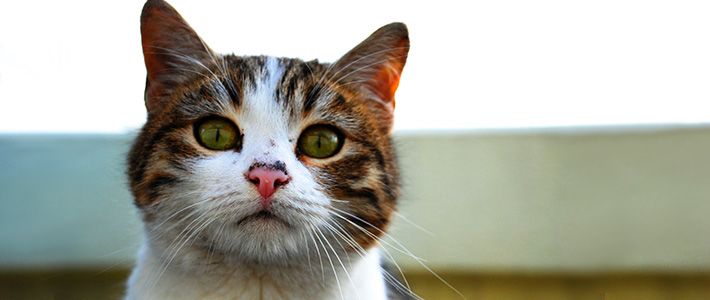
An Old Woman and Her Russian Cat
Culture- English
- 日本語
- 简体字
- 繁體字
- Français
- Español
- العربية
- Русский
Among my friends is an elderly Japanese woman. Some time ago, her daughter married a Russian man and moved to Moscow, but sadly she fell ill and died. That is why the woman came to Russia often—to visit her daughter’s grave. She made many friends during her stay, and I was one of them. She visited my house and stroked my cat.
The woman, I must say, is a true “cat lady.” She once told me, though, “I’ll never take any more cats. After all, when I die, who’ll take care of them? A kitten may be able to find a new owner, but a grown-up cat will have to fend for itself on the street.”
But life, it seems, had other plans. A huge dog appeared in the Moscow apartment where she was staying, followed by a calico kitten with red, white, and black fur. They got along well enough, but the dog’s playfulness left painful teeth marks on the cat’s skin. My Japanese friend’s heart was broken: with her hosts’ help, she completed the necessary veterinary and customs procedures and took the Russian kitten back with her to Japan.
I took the opportunity of a Japan visit to call on her at her home. The kitten had grown up to become a tubby cat named Sushi. They were perfectly happy together and understood each other very well. Sushi never seemed to get homesick; she made friends with local cats and enjoyed watching Japanese TV, including the news. She was particularly fond of programs about animals.
How was my woman friend doing? She was very happy with her feline companion, but she missed her Moscow acquaintances and wanted to invite them to her house. She could no longer travel to Russia as she had done before—she lived alone, so who would take care of her little Sushi while she was gone?
Having her Russian friends come to Japan proved to be far more complicated than she had thought, however. It required her to fill out a stack of papers for their visa application; she was also asked to submit a record of her employment, personal savings, real estate holdings, and so on. Troublesome, of course, but not impossible, she thought, considering it was for her good friends.
But she was flabbergasted to learn that she also needed to provide documentary evidence of the acquaintance: photos taken with the invitees and original copies of correspondences between friends. A footnote suggested that copies be made of the letters, for once the originals are submitted, they would be deposited in the archives and could not be returned.
Her friends in Japan explained to her that the paperwork was necessary because Japan and Russia had yet to conclude a peace treaty. But she became resentful and gave up the idea. Who needed an interstate agreement when the “treaty of friendship” between her and her Russian friends had been signed long ago?

The cover of the Russian edition of Natsume Sōseki’s Wagahai wa neko de aru, translated by Arkady Strugatsky. Strugatsky, who also translated Abe Kōbō’s Dai yon kanpyōki (trans. Inter Ice Age 4), was, along with his brother Boris, a very popular science fiction writer whose works have been adapted for the screen by such filmmakers as Andrei Tarkovsky and Alexander Sokurov.
I do not want to go into politics. I will only say that sometimes, it seems better to be a cat than a human, as unresolved political problems do not apply to cats. Cats do not need a special invitation to cross the border—only a health certificate and the goodwill of the owner.
Cats are clever animals, and they can probably adapt to any environment. I am personally very fond of one Japanese cat that made its way to Russia and found a home here: the cat adopted by Chinno Kushami (Mr. Sneaze) in Natsume Sōseki’s wonderful novel Wagahai wa neko de aru (trans. I Am a Cat). The Russian translation was published during the Cold War, and not even the frigid political climate could stop the animal from crossing the border and being loved by Russian readers.
Culture can go where people cannot. This is food for thought for those of us who consider ourselves “cultured people.”
Russians and Japanese have different cultures. But we both love poetry, which is the voice of the divine. Are our gods, up there in heaven, getting along with one another? I hope we will never have to quarrel over who is a better poet, Saigyō or Pushkin. Rather than dwell on differences, I hope our gods will gather on a cloud and organize a joint poetry reading!
(Originally written in Russian and published on June 5, 2016. Banner photo courtesy of Golybenkiy.)